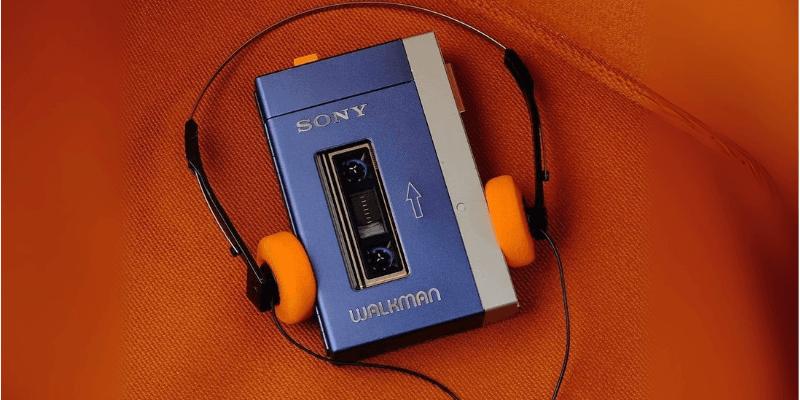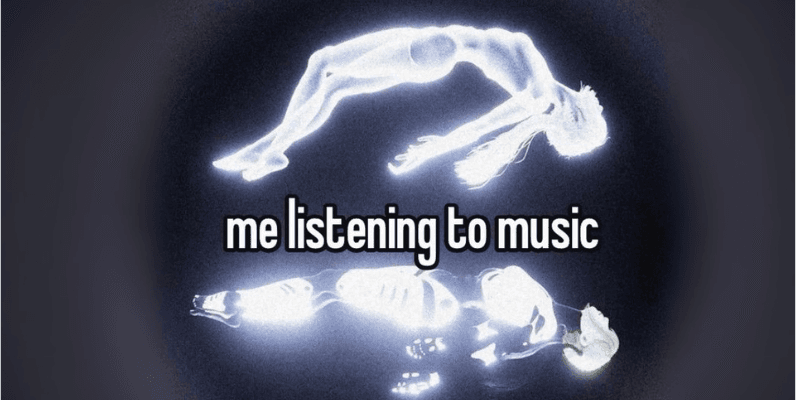
The Hidden Magic of Music: How Sound Shape Our Brain
A raw and personal exploration of how music moves our body, awakens emotions, triggers memories, and rewires the brain. Discover why beats, nostalgia, and rhythm are more than just sound.

Music.
No one notices much about it. With today’s convenience, we can access as much music as we want anytime and anywhere. Just put on your earphones, and suddenly you’re disconnected from the outside world. Music gives your brain everything it craves.
But here’s the real question:
what is the magic inside this ear canal that makes your body move, gives you goosebumps, and drops the dopamine you’ve been waiting for?
An industry worth trillions exists just for our two ears and a bunch of neurons. If humans had no ears at all, the music industry wouldn’t even exist.
So this blog is about that hidden power of music—what’s inside the instruments, lyrics, and sounds that make us feel something deep inside.
Music is Ancient Therapy
Music isn’t new. It existed before language. People connected through rhythms, through dance, through sound. Music is pre-installed in the human brain.
You don’t learn it. You’re not taught it. It’s built into you.
Take a baby under six months old. He doesn’t know how to talk. He doesn’t understand this world. But sing a lullaby, and his whole attention shifts. He’ll move his tiny arms and legs in sync with the music. That’s proof. Music touches every part of the brain—it’s how humans are built.
Music LITERALLY Moves You
Lyrics may bring you peace, but the real magic lies in the beat. That’s what triggers nostalgia, delight, and goosebumps. Ever noticed how your toes, fingers, or neck move automatically when the beat drops? You don’t even command it. Music makes you move—inside and out.
It’s not just external movement, though. Music stirs your inner body and brain. It evokes emotions we can’t always put into words. In ancient times, people sang and danced to express joy, grief, worship or love when language failed. Music was their emotional outlet.
Even now, you might hear a song and think, this is my story, i can relate to this song, this evoke my emotions.. That’s not just the lyrics. It’s the sound working on your neurons. Music describes emotions you can’t express and even generates new ones inside you. That’s the magic.
Why Music Hits Differently
For men high in adrenaline and testosterone, hard beats, raps, and heavy drums hit deeper. Travis Scott, Divine, Snoop Dogg—they don’t just make songs. They wire lyrics to beats in a way that makes you feel it in your veins.
That’s why gyms blast loud, high-energy tracks. Drums and bass awaken neurons that fuel motivation. Music flips the switch inside your brain and pushes you into “beast mode.”
Different genres trigger different emotions. A person who listens to music daily learns to control emotions—slowing down or amplifying them at will. Someone who avoids music? They are just suppressing emotions until they feel empty or “emotionally unavailable.”
Think of it like your appendix: once useful, now mostly useless. Ignore the emotional brain, and it starts shutting down. But music can keeps it alive.

The Subconscious Brain
Here’s something powerful: music quietly controls your subconscious brain.
Example: breathing. Normally, your subconscious handles it. But music can sync your breathing with the rhythm—without your control. And we all know deep breathing means more oxygen, better blood flow, and a healthier cardiovascular system.
So, listening to music 30–60 minutes a day doesn’t just make you happier—it actually makes you mentally and physically stronger.
Music Unlocks Suppressed Memories
During research, I found something fascinating: music can awaken long-buried emotions from the subconscious.
Think about it. You smell wet sand, or flowers, or hear the sound of rain—and suddenly, you’re back in childhood. Music works the same way. Nostalgic songs hit neurons you didn’t even know were still alive. They recreate emotions you haven’t felt in years. That’s why you sometimes get goosebumps with a song you can’t even explain.
Music reignites parts of your brain you thought were gone. Music works like magic.
Pattern Recognition
Another hidden power: music sharpens your brain’s prediction skills.
When listening, you often predict the next beat or drop. Sometimes, the music matches your guess. But when the artist flips the beat unexpectedly—that surprise creates dopamine. That’s the “wow” moment. And it makes you crave more.
Music literally trains your brain to recognize patterns.
Fast Beats = High Energy
One secret: music with fast cadence (140–170 BPM) boosts energy. That’s why high-beat tracks make workouts feel easier and more powerful.
Formula: Fast beats + favorite lyrics = pure motivation.
Also, science says 40 Hz binaural beats enhance focus and concentration.
The Other Side of Music
Now, I won’t lie. Music isn’t always the answer.
For deep focus, silence is king. Instrumentals are second best. Lyrical songs—especially rap—are the worst when doing mentally intense work. So, if you need to grind:
- Work in silence
- Play instrumental background music.
But if you want motivation before starting, listen to your favorite tracks for 15–30 minutes to spark your brain.
Numbers That Matter
- 9 minutes of happy music can lift your mood.
- 13 minutes of sad music can drag you into a low emotional state.
Music is a switch. It awakes emotions.
My Recommendation
If you want to feel the real magic, listen to the Interstellar soundtrack by Hans Zimmer. It’s pure focus and energy in instrumental form. That album changed how I look at music when i am at any focused work.
(Here’s the YouTube album link. Trust me—you’ll feel it too.)
Final Words
I’m not a professional musician. I don’t know technical jargon.
What I do know is what I feel. And what I feel is real.
This blog is me—raw, unpolished, from the heart. It’s my research, my experience, and my truth about music. If this resonates with you, drop a comment below. Let’s share the magic together.

Tushar Panchal
Introvert and lifelong brainstormer from Haryana. I write about whatever comes to mind.
Read more about me →